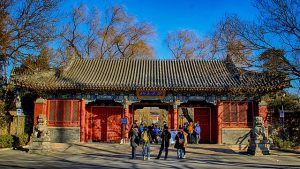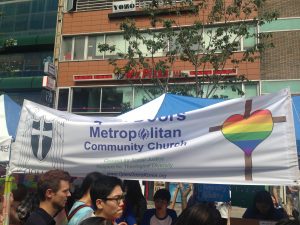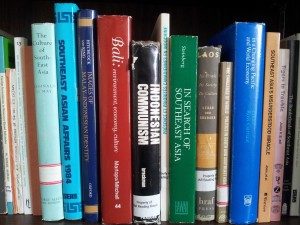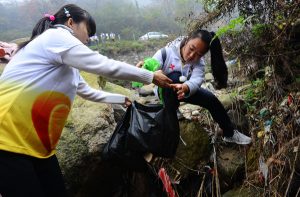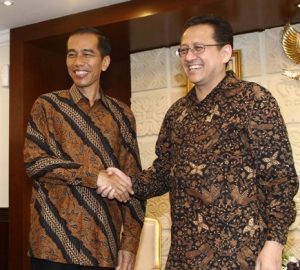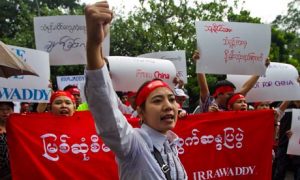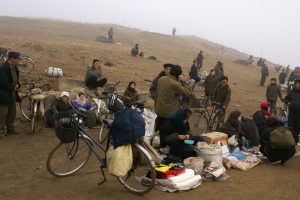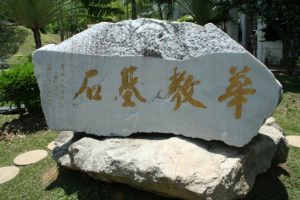A New Look at Chinese Liberalism among Elite Students
Memo #330 By Fen Lin – fenlin [at] cityu.edu.hk Peking University, the traditional locus of Chinese liberalism, seems to be yielding this role to China’s economics and financial universities. A 2012 survey, conducted among six elite universities in Beijing and Shanghai, revealed that only 14% of Peking University students described themselves as liberal reformists, the lowest […]
Integrating Sexual Minorities in South Korea
Memo #321 By Joseph Yi – joyichicago [at] yahoo.com, Joe Phillips – joephillips5 [at] gmail.com, Heather Yang – heatheryang0102 [at] gmail.com The LGBT (Lesbian, Gay, Bisexual, Transgender) occupy a peculiar place in South Korean society. By maintaining somewhat sexually free, separate social enclaves, they avoid significant public backlash and government oppression. However, they have no […]
Whither Area Studies?
Memo #316 Advancing the project of Comparative Area Studies and fruitful Area Studies Comparisons: an Intervention from Europe By Jürgen Rüland – juergen.rueland [at] politik.uni-freiburg.de & Mikko Huotari – mikko.huotari [at] merics.de There is no universal ultimate golden mean between disciplinary research and area studies. Viable intermediate positions are eventually dependent on an individual researcher’s […]
The Rise of Volunteering in China: Transforming Cities and Personhood
Memo #266 By Lisa Hoffman – hoffmanl [at] uw.edu Indicative of an increased attention to volunteerism as a tool for cities and communities across the globe, in 2011 the United Nations issued its first State of the World’s Volunteerism Report, subtitled “Universal Values for Global Wellbeing.” Young people in particular have been encouraged by agencies […]
Decentralized Governance and Local Leadership in Urbanizing Asia
Memo #255 By Michelle Ann Miller – arimam [at] nus.edu.sg and Tim Bunnell – geotgb [at] nus.edu.sg The trend toward decentralized governance in twenty-first century urbanizing Asia has ushered in a critical role for local leadership. With around 1.5 billion people currently living in its urban areas, Asia is home to more than half of […]
Chinese Companies Moving into the World Market… Responsibly?
Two decades after it began opening up to the world, China devised the “Going Out” strategy in the late 1990s to encourage Chinese companies to operate on a global scale. China’s outbound direct investment (ODI) has surged, reaching a staggering total of US$68 billion in 2010—over five percent of global FDI flows. Chinese ODI has targeted all sectors of the world economy, with a marked presence in the resource and infrastructure sectors, and in developing regions like Africa and Southeast Asia where bilateral and multilateral partnerships with the People’s Republic are deepening.
Post-socialism, North Korean Style: With State Economy in Ruins, Workers Look Elsewhere for Employment
North Korea is often described as the “world’s last Stalinist state,” but this is misleading. While the facade of a Stalinist economy remains visible in Pyongyang, the nation’s capital, the socialist regime has long become an empty shell. The North Korean economy is now dominated by legal, semi-legal, and entirely illegal private enterprises that provide employment for workers who have failed to make ends meet in the formal economy. As such, it more closely resembles a post-socialist Eastern European economy than a Stalinist one.
Pocket Social Networking in India – SMS GupShup Expands
Memo #190 – The communication revolution has spread to small towns and even villages in India through a Twitter-like Small Message Service (SMS) social marketing networking alternative called GupShup. The low-cost text messaging service for phone, web, or mobile communication facilitates “pocket social networking” for people without smart phones. It is estimated to currently process two billion messages per month in India, compared to 480 million a year ago.
Mobilizing the Chinese Education Movement in Malaysia
Memo #174 – The Chinese education movement in Malaysia fought for the survival of Chinese vernacular schools within the Malay-dominated education system since 1951. Today it is one of the most influential political entities among Chinese-speaking Malaysians. It is playing a critical role in influencing votes to support a movement-friendly political alliance in the next general election.
The Shifting Role of Law in Myanmar
Memo #84 – A Myanmar court on March 29, 2011 granted bail to Australian businessman Ross Dunkley accused of assaulting and unlawfully confining a sex worker. Dunkley said he would fight the charges. “I just can’t believe there is a case,” Agence France Press quoted him as saying. “There is no witness, there is no evidence. “
